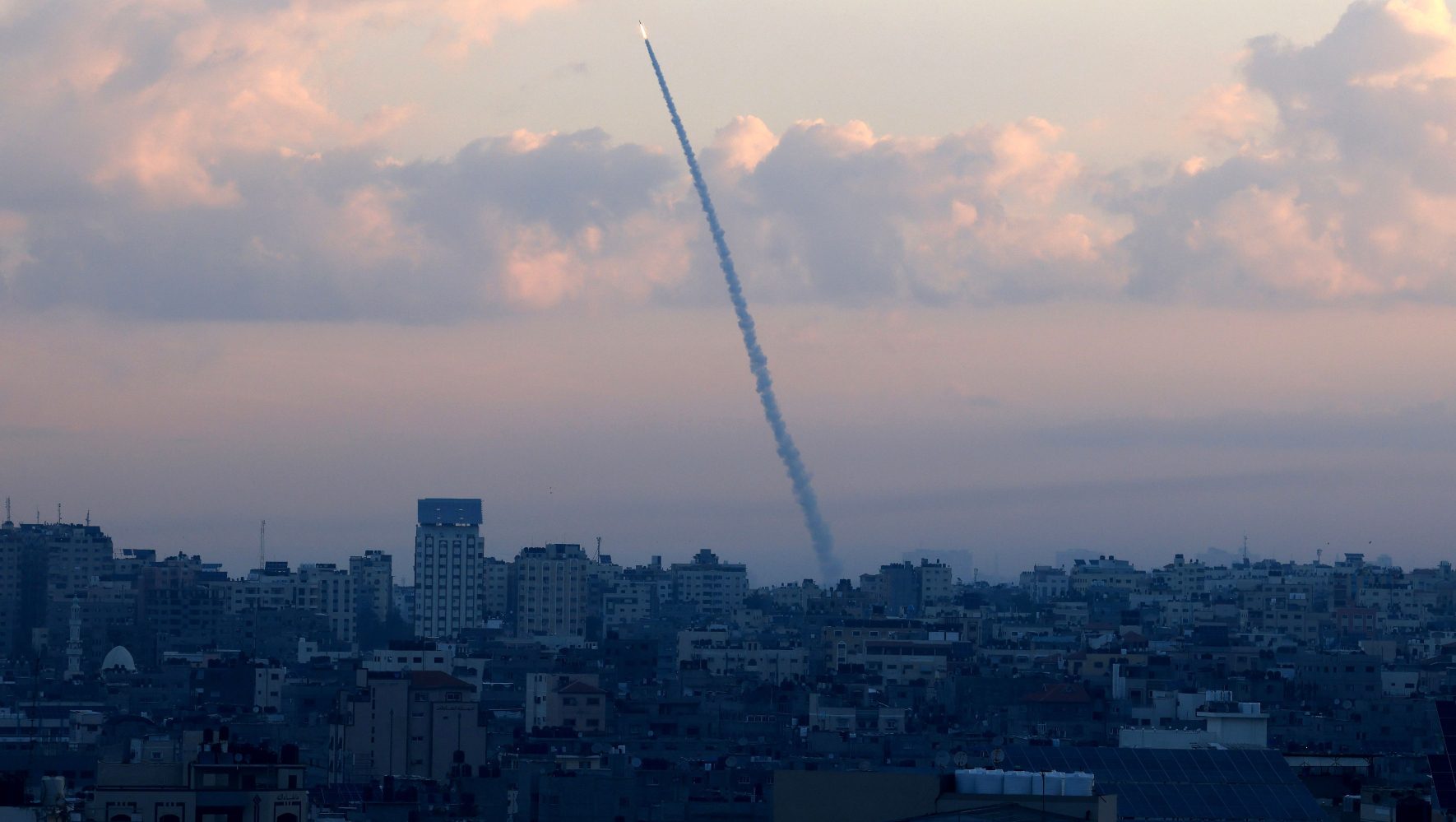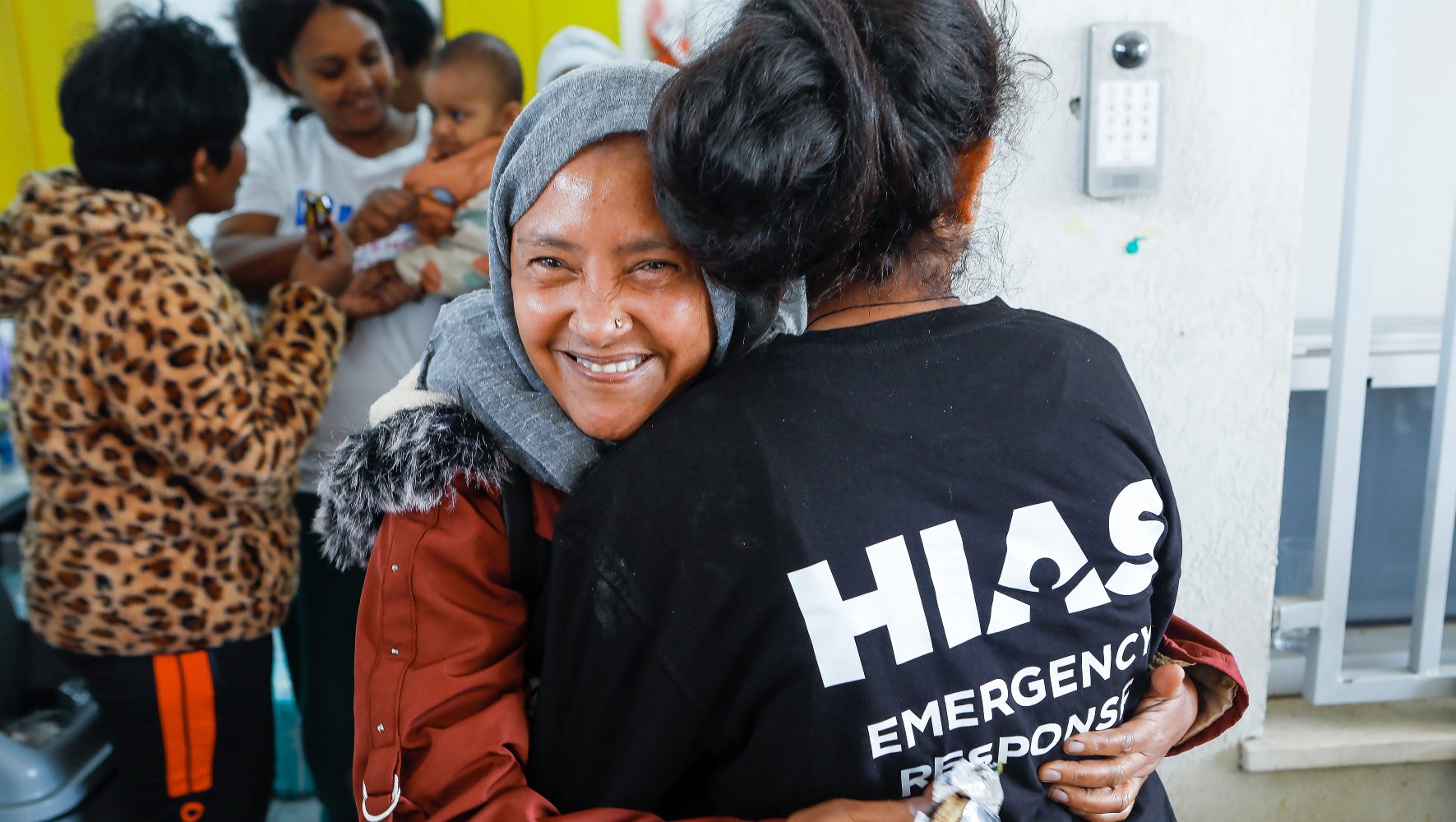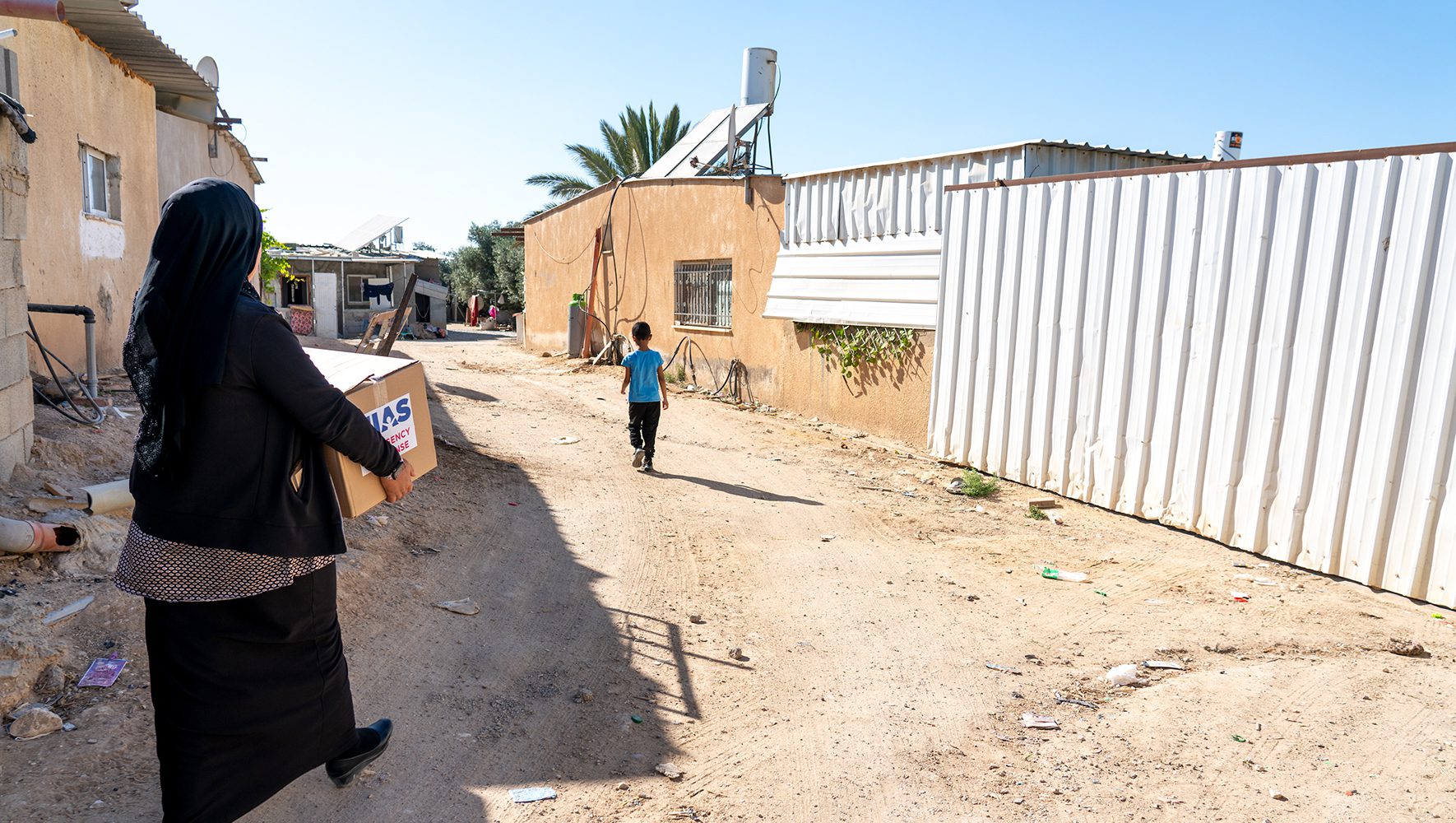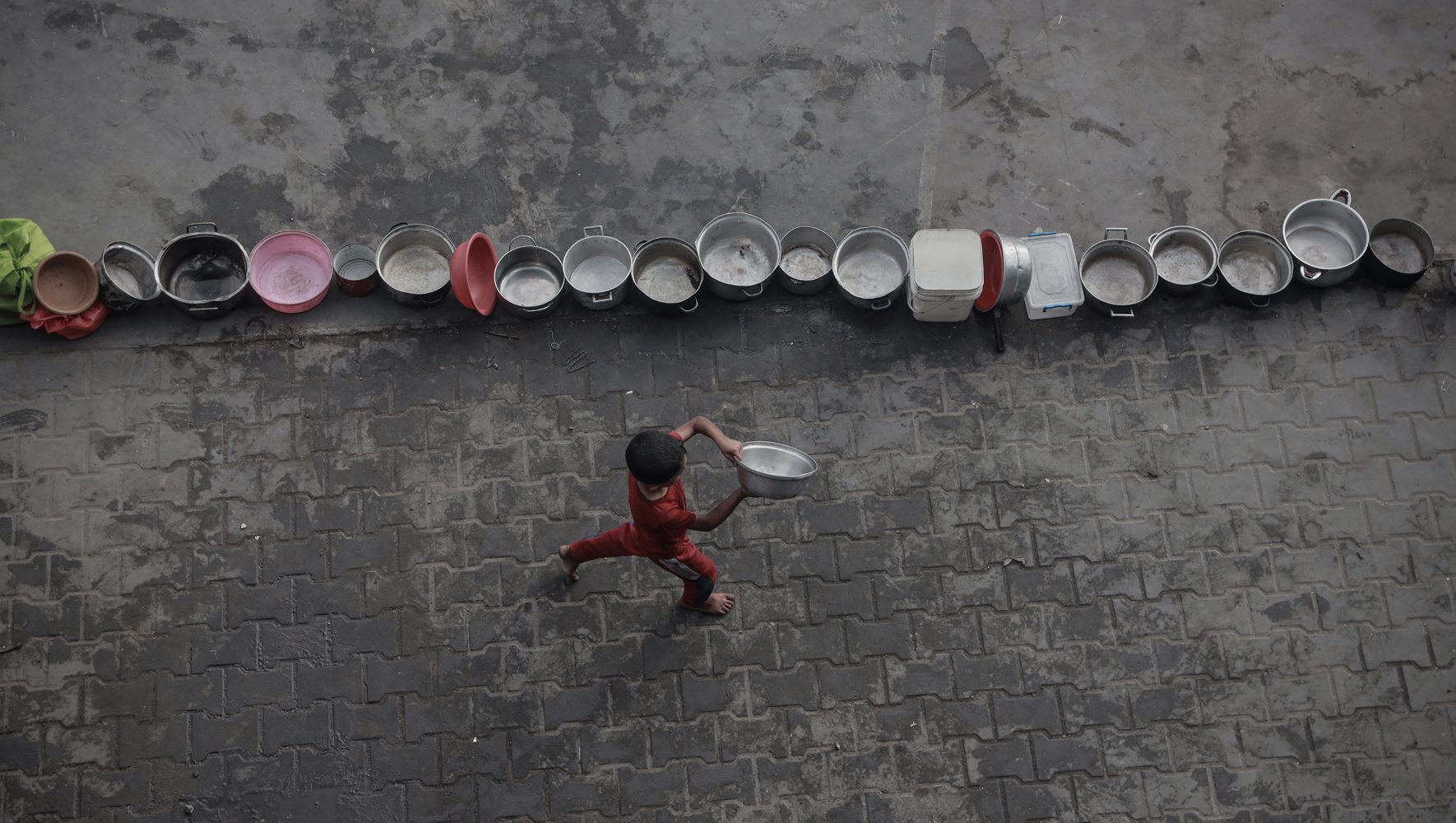
Zichronam Livracha. May their Memories be a Blessing.
On October 7, 2023, Hamas militants attacked Israelis in their homes, at a music festival, in the streets. By the time the killings stopped, the scale of the attack was almost incomprehensible: Over 1,200 dead, thousands more injured, and an estimated 200,000 people displaced from their homes. More than 200 were taken hostage in Gaza, many never to return home. The fate of many others remains unknown.
In the Jewish tradition, today is a yahrtzeit, a day of mourning all those lost that day. But it is also a moment to reflect on all that has transpired since: the tens of thousands of civilians who have been killed and injured in Gaza, the hundreds of thousands who have been displaced, and the millions currently gripped by the fear of even further devastation as we sit on the precipice of a regional war.
As we mark one year since this horrific day, HIAS joins the wider Jewish community in mourning the dead and calling for the immediate release of the remaining hostages. We also recognize the overwhelming heartbreak and tragedy that the last year has brought on all sides of this conflict, and we hold the pain and suffering of families who lost loved ones both on October 7 and in the months since. We express our ongoing outrage for the utter devastation wrought on civilians in Gaza. And we honor the lives of the unprecedented number of humanitarian workers killed as they provided aid.
Our Response
In the past year, HIAS has responded directly to the needs in Israel, with a focus on the people and communities excluded from the government response. At the same time, we have raised funds for trusted humanitarian partners in Gaza and advocated for humanitarian aid, access, and ultimately, peace. As always, we have focused our response on the human impact of the sustained violence in the region, standing for empathy and compassion as we have for more than 100 years.
Amid the intense fear and grief of October 7 — nearly every member of HIAS Israel staff personally knew a family affected by death or kidnapping — the team took action. Within 48 hours of the attacks, HIAS began our initial assessment and our emergency response, working with over 20 partner organizations to provide shelter, food, baby and hygiene products, and other basic needs to those affected. In the ensuing weeks, we contributed cash and voucher assistance, food and household items, and psychological care. One of our first partners was an Israeli organization providing psychological first aid, and they were overwhelmed by callers in the first days and weeks. HIAS staff traveled the length of the country to meet with individuals impacted by the attacks, including vulnerable populations in remote areas. These populations included many who had been displaced from elsewhere and had subsequently sought asylum in Israel. Over the course of the year, our emergency response in Israel reached over 250,000 people.
We recognize the overwhelming heartbreak and tragedy that the last year has brought on all sides of this conflict, and we hold the pain and suffering of families who lost loved ones both on October 7 and in the months since.
One HIAS partner is the Jerusalem African Community Center (JACC), an organization that provides social services to refugees from countries like Eritrea and Sudan. In the aftermath of October 7, JACC recognized an urgent, unmet need for mental health and psychological support for women traumatized by the attacks. With HIAS’ support, the organization formed weekly “Women’s Circles” where participants could share their experiences and emotions. “JACC is like a mother to us,” Weini, a mother of five originally from Eritrea, told HIAS.
Our work with JACC was far from an isolated example. For years, HIAS has worked with asylum seekers and refugees in Israel, and we were able to work together with new and existing partners to reach displaced people for whom the October 7 attacks threatened their already tenuous place in Israeli society. These individuals included Ukrainians displaced by conflict in their own country who sought refuge in Israel, only to find themselves again impacted by war; Bedouin in the Negev largely cut off from government services; and residents of communities near the Lebanon border evacuated from their homes. Aély Haccoun, HIAS’ emergency response director in Israel, said that the goal of the response is to provide meaningful support to the people who have fallen through the cracks. “Our priority is uplifting the humanity of all the vulnerable communities, whether they’re long forgotten or newly affected.”

Bearing Witness, One Year Later
Read MoreThe Challenge Ahead
The effects of the October 7 attacks have transformed the entire region, where multiple displacement crises have arisen side by side, in Israel and in Gaza, and now, in Lebanon. In each crisis, civilians, traumatized by violence, have been uprooted from their homes. In Israel, approximately 200,000 people were displaced in the immediate aftermath, and while many were able to return, still others are currently being displaced as the war expands to the North. In Gaza, since the onset of the war nearly two million people have been displaced, most of them multiple times. Infrastructure has been destroyed and critical supplies of food and medicine have been blocked from reaching the neediest, placing thousands of civilians on the brink of famine and disease. More than 40,000 have been killed in Gaza, and 100,000 injured. One year later, there is no safe place in Gaza.
The worsening of these regional crises in the past year has led HIAS to widen its response beyond its initial scope. HIAS continues to advocate for immediate, full, and sustained humanitarian access, and has raised money for two partner organizations operating on the ground in Gaza: Catholic Relief Services and Global Communities. We continue to call for all civilians to be protected, hostages to be released, and for the laws of war to be observed by all parties.
The attacks of October 7, and subsequent events, have unleashed an avalanche of trauma, pain, and suffering in Israel, in Gaza, and across the region. One year later, the conflict underpinning this destruction is far from resolved. Antisemitic, Islamophobic, and xenophobic rhetoric has escalated around the world. Guided by our mission, and Jewish and humanitarian values, HIAS is committed to assisting those forcibly displaced by conflict, regardless of their religion, race, ethnicity or nationality. We will continue to do so long into the future. “Within this pain,” said Sivan Carmel, HIAS Israel’s director, “we do our work.”



